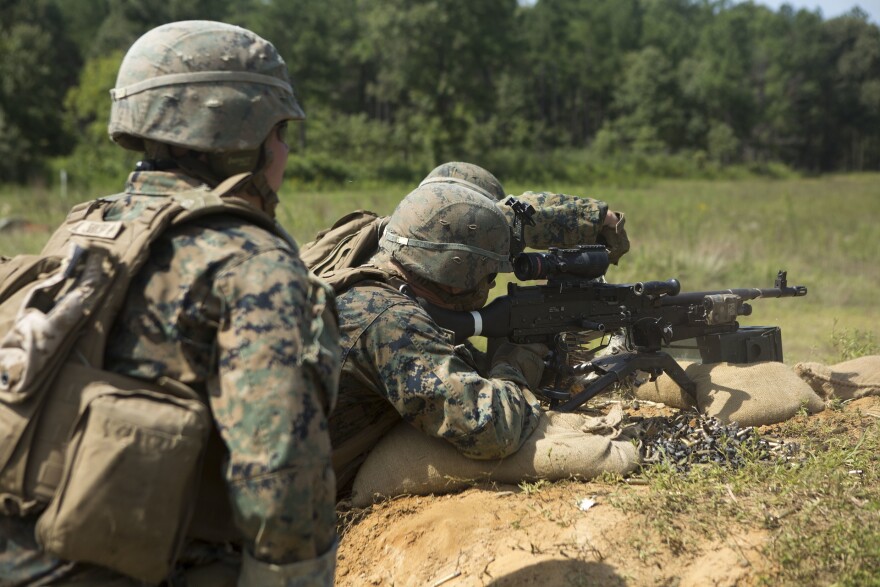The military's ban on transgender troops serving openly is harming its ability to protect the nation, according to a new study from the Palm Center.
The research institute studies LGBTQ policy and found the ban did not enhance military readiness like the Trump administration said it would. Instead, it had the opposite effect.
"It has compromised morale, it has undermined unit cohesion, it has impeded the military's ability to recruit and retain talent,” said Palm Center Director Aaron Belkin.
The ban, first announced by President Trump in 2017 and formally implemented last year amid a series of legal challenges, overturned a 2016 order by the Obama administration that allowed transgender people to serve openly.
Those still on active duty have been allowed to continue serving, but the study finds many feel unwelcome because of the discriminatory policy, which damages morale.
The ban also hurts recruitment efforts, the study showed. The Palm Center estimates there are about 200,000 transgender Americans who would otherwise be eligible to serve. The ban turns them away, costing the military potential new talent. It also discourages some cisgender people from joining.
“It sends a signal that the military is on the wrong side of history, it's intolerant of diversity, and that's not a signal that the military should send because it alienates a lot of people,” said Belkin.
Polls have shown American citizens and active duty troops broadly support transgender service.
Belkin co-authored the study with several former military health leaders, and they based their conclusions on a variety of sources including survey data, interviews with troops and senior officials, and existing literature about the ban.
The Department of Defense has not yet responded to a request for comment about the study.
Belkin is urging President-elect Joe Biden to follow through on his promise to reverse the ban as soon as he takes office in January. But he said more needs to be done for the military to build trust with the transgender community.
He suggests the Pentagon formally apologize for the ban and acknowledge it stemmed from intolerance. He also called on the Department of Veterans Affairs to cover the costs of gender affirming surgeries, and for Congress to legislate protections against discrimination in the military.




